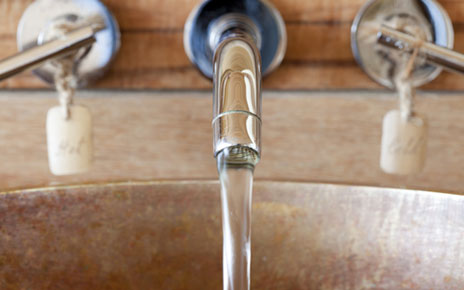
Most people assume that water is just water but, in reality, not all water is “created” equal. Typically, water falls into one of two categories: hard and soft. The difference has nothing to do with how it feels, and everything to do with the mineral content. Although both are safe for human consumption, some homeowners prefer soft water over hard water and vice versa. Knowing the difference between the two can save you money while improving your health.
As rainwater falls, it’s naturally soft. However, as water makes its way into our waterways, it picks up minerals, particularly calcium and magnesium. Since hard water contains essential minerals, it is sometimes the preferred drinking water. Although hard water tastes slightly better, soft water is preferred in most households for one reason: hard water is harsh. Hard water is to blame for dingy clothes, dishes with spots, soap scum accumulation, higher energy use, weak lather, and dried out skin.
Identifying Hard/Soft Water
The most common way to determine the hardness of water is by investigating the formation of suds when you use soap. There is less lather formation with hard water; instead, soap scum is produced. Additionally, hard water forms deposits through calcification that can clog plumbing. In swimming pools, a cloudy or milky appearance is a sign of hard water. While hard and soft water test kits are sold at most home improvement stores, the identification of soap suds is the easiest way to evaluate the hardness of your home’s water.
When it comes to hard water, it’s often classified into either permanent or temporary hardness. Hardness that can’t be “removed” via boiling is called permanent hardness. Since water hardness is caused by the presence of bicarbonate materials, boiling hard water can actually remove these materials – with the end result being soft water. If the water hardness can be “boiled out”, the water is classified as being temporarily hard. Note: permanent hardness can still be softened, just not through boiling.
Advantages and Disadvantages
Although soft water may be preferred for household chores, both types of water have their own advantages and disadvantages. Hard water typically has a more pleasant taste, and some people believe it’s better for your health because it provides the body with essential minerals. However, it can leave deposits and corrode pipes over time. Hard water tends to leave behind spots on dishes and in showers and bathtubs, and doesn’t produce much soap lather. In some cases, hard water can prevent water heaters and washing machines from working properly.
While soft water is better for the skin, better for cleaning clothing and dishes, and helps household appliances work more efficiently, the biggest drawback is that it does not taste as good as hard water. If you use tap water for drinking and cooking, expect a salty, flat taste.
How is Hard Water Softened?
There are several ways to reduce the hardness of water, including distillation, reverse osmosis, or, most commonly, the addition of a chemical softener. A high quality water softener system will give you well balanced water for your home. If you think you may have hard water, contact a commercial water filtration and treatment company for more information.